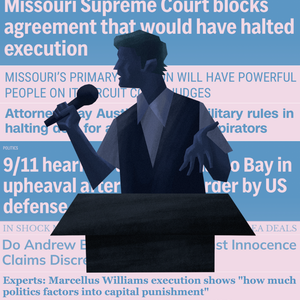A new book by law professor Kenneth Williams of South Texas College of Law, titled Most Deserving of Death? An Analysis of the Supreme Court’s Death Penalty Jurisprudence, examines whether the death penalty system really punishes the worst offenders, as intended by the Supreme Court’s approval of state laws. The book looks at issues such as jury selection, ineffective assistance of counsel, innocence, and race, and how these issues reflect on who is sentenced to death. Prof. Williams concludes that that application of the death penalty is inconsistent and incoherent, partly because of the Supreme Court’s jurisprudence, and this leads to a lack of public confidence in the system. Prof. Susan D. Rozelle, of the Stetson University College of Law, said of the book, “Williams shines light into the dark corners of the capital punishment debate by focusing on the procedural nightmare. He takes readers on a whirlwind tour of the system’s failures, showing starkly how bad lawyering, racial discrimination, and shoddy science, for example, can mean the difference between life and death.”
(K. Williams, “Most Deserving of Death? An Analysis of the Supreme Court’s Death Penalty Jurisprudence,” Ashgate Publishing, March 2012). See U.S. Supreme Court. Read more books about the death penalty.
United States Supreme Court
Oct 08, 2024

United States Supreme Court Will Consider Significance of Prosecutor’s Confession of Error in Glossip v. Oklahoma
Arbitrariness
Oct 04, 2024

A Chance at Life, Withdrawn: When Politics Interferes with Plea Deals
Arbitrariness
Aug 06, 2024
